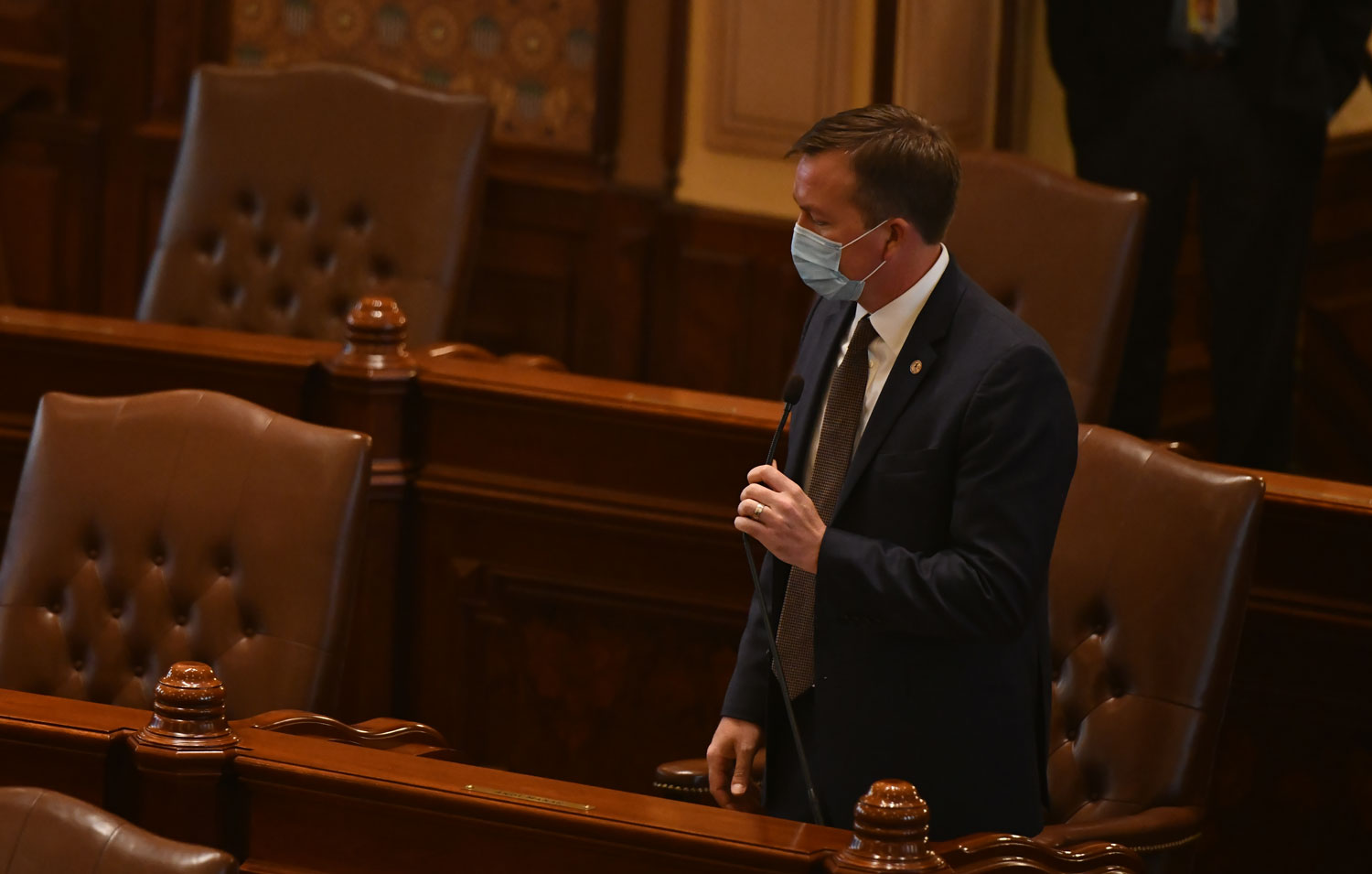 SPRINGFIELD – The Illinois General Assembly today approved legislation to help rank-and-file teachers and school districts address the unique challenges to Illinois’ education system created by COVID-19.
SPRINGFIELD – The Illinois General Assembly today approved legislation to help rank-and-file teachers and school districts address the unique challenges to Illinois’ education system created by COVID-19.
Senate Bill 1569 makes a number of changes that help schools adjust to remote learning, including the following:
-
- Allows for the creation of remote learning days and remote learning plans
- Allows for a combination of remote learning and in-person instruction
- Suspends clock hour requirements when a disaster is declared
- Affirms graduation modifications granted to Spring 2020 graduates
- Allows mandated exams to be completed remotely
“This package provides school districts more flexibility and creativity to work around the limitations posed by COVID-19,” said State Senator Andy Manar (D-Bunker Hill). “This will help them deliver the best possible learning experience for their students as the circumstances evolve over the next year.”
Because teacher evaluations for the 20-21 school year have been paused due to COVID-19, SB 1569 extends teacher license renewals by one year.
The legislation also extends a law allowing retired teachers to return to the classroom as substitutes for up to 120 paid days or 600 paid hours without impairing their retirement status. Originally passed by Senator Manar in 2017, the program has helped address the severe teacher shortage facing downstate school districts.
“Over the past few months, aspiring, current, and retired teachers have stepped up to serve their communities in ways many of them have never imagined they would,” Manar. “They’ve gone above and beyond to be there for their students, despite a host of administrative and financial challenges. I’m pleased that we were able to remove some of those hurdles and sources of uncertainty.”
Finally, the legislation also makes it easier for college students who receive financial assistance through the Aspirational Institutional Match Illinois Grow Higher Education Grant Pilot Program, also known as AIM HIGH, to retain their aid for the duration of their four years of undergraduate studies.
AIM HIGH provides financial assistance to eligible low-income students who attend one of the state’s 12 public universities. Under the measure, the income of a student when entering the program will be the income of the student for the life of the program.













 © 2026 Illinois Senate Democratic Caucus
© 2026 Illinois Senate Democratic Caucus